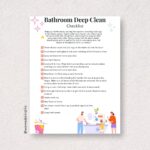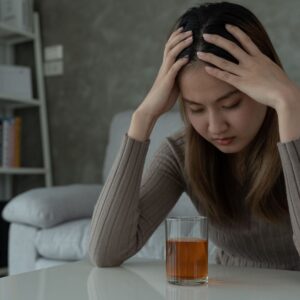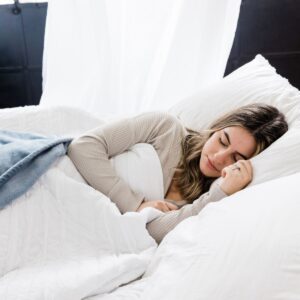
Do you suffer from anxiety? You're not alone. In fact, according to the Anxiety and Depression Association of America, anxiety disorders are the most common mental illness in the U.S., affecting 40 million adults aged 18 and older.
8 Tips on How to Alleviate Anxiety Naturally (Image Credit Pexels)
While there’re many methods of treating anxiety, such as therapy and medication, some people prefer natural methods. When carefully chosen, these methods can be just as effective as traditional treatments, with the bonus of being more gentle on the body. Here are tips on how to alleviate anxiety naturally:
Create a Peaceful and Inviting Home
The condition of your home significantly affects your mood and anxiety levels. If your home is cluttered and chaotic, it makes anxiety worse. Creating a peaceful and inviting home environment reduces stress.
Start by decluttering your living space. Get rid of anything you don't need or use, then thoroughly clean the area. Add fresh flowers or plants, play soft music, and use soothing scents like lavender or chamomile. Find air-purifying plants online to cleanse and purify the air in your home. You'll sleep better, feel calmer, and have more energy.
If your home is dark and dreary, let in more light. Open the curtains and turn on the lights. Sunlight is especially effective at lifting your mood and reducing anxiety. Painting walls with a light, airy color can also make a big difference.
Get Moving
Exercise is a great way to reduce stress and boost your mood. Even if you don't feel like working out, just getting up and moving your body for a few minutes can make a big difference.
Better still, go out in nature and get some fresh air. Research shows that spending time in nature reduces stress and anxiety. You don't have to go all the way to the forest to reap the benefits, either. Even spending time in a nearby park can be helpful.
When you exercise, your body releases endorphins, which have mood-boosting effects. Endorphins also interact with the receptors in your brain that reduce pain signals. That's why exercise can be such an effective treatment for anxiety and depression. You also sleep better, get into shape and improve your overall health when you make exercise a regular part of your life.
Connect with Others
One of the main things that people who suffer from anxiety want is to feel connected and supported. When you're feeling anxious, it's tempting to withdraw from social situations.
.
Image Credit Pexels
Spending time with friends, family, or even strangers can reduce anxiety. Interacting with others releases oxytocin, a calming and anti-anxiety hormone. Oxytocin is sometimes called the "cuddle hormone" because it's also released when you hug someone or bond with a pet.
If you don't have anyone in your life to spend time with, there are other ways to connect with others. Join a support group for people with anxiety or reach out to a therapist or counselor. Talking to someone who understands what you're going through is very helpful.
However, choose who to interact with carefully. Some friends and family members can worsen the anxiety instead of improving it. If you feel more anxious after spending time with someone, they're probably not the best person to turn to when you need support. Constant criticism, nitpicking, and negative comments make anxiety worse.
Limit or Avoid Alcohol and Caffeine
It's tempting to drink alcohol or caffeine when you're feeling anxious. They both have short-term effects that make you feel better. Unfortunately, they also have long-term effects that worsen anxiety.
Alcohol is a depressant, so it increases feelings of sadness and loneliness. It also interferes with sleep. Caffeine is a stimulant, making you feel more jittery and on edge. It can also trigger panic attacks.
Get Enough Sleep
Sleep is critical for both physical and mental health. When you don't get enough sleep, it makes anxiety worse. Being tired makes the body more sensitive to stress hormones like cortisol.
Aim to get at least seven to eight hours of sleep every night. If you have trouble falling asleep or staying asleep, there are things you can do to improve your sleep hygiene. Avoid caffeine and detox from alcohol in the evening, establish a regular sleep schedule, and create a relaxing bedtime routine.
Eat a Healthy Diet
What you eat has a significant impact on your mood and energy levels. Processed foods, sugary snacks, and refined carbs worsen anxiety as they cause spikes and crashes in blood sugar levels. You feel irritable, anxious, and dizzy when your blood sugar drops.
To keep anxiety at bay, eat a diet rich in whole foods like fruits, vegetables, and lean protein. They provide the nutrients your body needs to function correctly. They also stabilize blood sugar levels, keeping anxiety away.
Avoid Negative Thinking
Negative thoughts often fuel anxiety. If you're constantly focused on the worst-case scenario, it's no wonder you're feeling anxious. Recognizing and reframing negative thoughts is an essential part of managing anxiety.
Whenever you catch yourself thinking something negative, stop and question it. Is it true? What evidence do you have to support it? Once you've challenged the negative thought, replace it with a more positive one.
Every day, write down positive things that happen to you, no matter how small. Doing this helps you focus on the good instead of the bad. Also, try accepting yourself, even if you make mistakes. Everyone makes them – it's part of being human.
Practice Relaxation Techniques
Relaxation techniques are very effective at reducing anxiety. They calm you down when feeling anxious and stressed. There are many different relaxation techniques you can try. Some involve breathing exercises, while others focus on visualization or muscle relaxation.
One of the most popular relaxation techniques is progressive muscle relaxation. It entails tensing and relaxing different muscle groups in the body. When you tighten a muscle, focus on the sensation. As you loosen it, let go of the tension and focus on the feeling of relaxation.
All You Need Is Some Time
Anxiety has grievous consequences if left unattended. It can disrupt your life, causing insomnia, fatigue, and irritability. Over time, stress can lead to more severe health problems like heart disease. Fortunately, there are many natural ways to reduce anxiety. Most don't cost you anything except time. The next time you feel anxious, try one of these tips.


















Leave a Reply